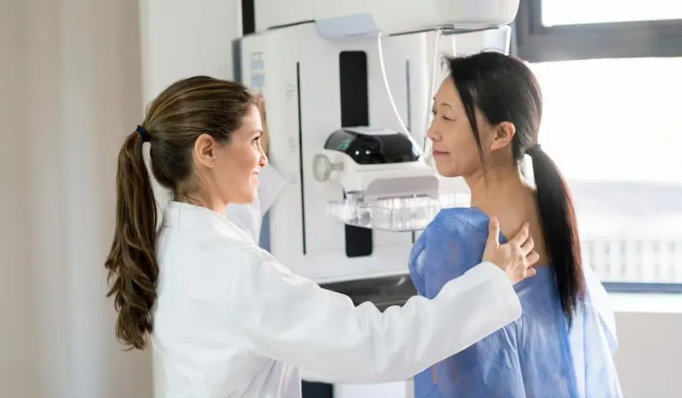Essential Health Checks: What Tests and Analyses Should You Have Annually?
It’s vital to regularly monitor your health for overall well-being. While everyone’s health needs are different, certain tests and analyses should be done yearly to stay proactive about your health. These assessments can identify potential issues early, leading to better health outcomes. Here are key health checks to consider:
Physical Examination
A comprehensive check by a healthcare provider is essential for health monitoring. During this exam, your provider assesses your overall health, checks vital signs, and addresses any concerns or symptoms you have. They may perform a basic physical assessment, examining your heart, lungs, abdomen, and skin.
Blood Pressure Measurement
Monitoring your blood pressure is crucial for cardiovascular health. High blood pressure (hypertension) often has no noticeable symptoms but can lead to serious health issues. Regular blood pressure checks can help identify hypertension early, allowing for lifestyle changes or medication as needed.
Cholesterol Profile
A cholesterol test measures your cholesterol levels, including LDL (low-density lipoprotein) and HDL (high-density lipoprotein) cholesterol. High levels of LDL cholesterol are associated with an increased risk of heart disease, while higher levels of HDL cholesterol are considered beneficial. Monitoring your cholesterol profile can help assess your heart health.
In the realm of strength training, it’s crucial to address potential side effects when incorporating supplements like Anadrol. While Anadrol can offer significant benefits in muscle gains and performance enhancement, it’s imperative to navigate its usage cautiously to mitigate any adverse effects. “Managing Anadrol Side Effects for Safe Use in Strength Training” requires a comprehensive understanding of its impact on the body and a proactive approach to counterbalancing any potential risks. By prioritizing diligent monitoring, proper dosage, and incorporating supportive measures such as liver protection supplements and post-cycle therapy, individuals can optimize their Anadrol usage while prioritizing their overall health and well-being.
Blood Glucose Test
Checking your blood glucose (blood sugar) levels is essential for diabetes prevention and management. Elevated blood glucose levels can indicate prediabetes or diabetes. Early detection and lifestyle modifications can help manage these conditions effectively.
Complete Blood Count (CBC)
A complete blood count assesses various components of your blood, including red blood cells, white blood cells, and platelets. It can help identify conditions such as anemia, infection, and certain blood disorders.
Dental Check-Up
Regular dental check-ups are essential for oral health. Dental exams can detect issues like cavities, gum disease, and oral cancer early, allowing for prompt treatment.
Eye Examination
An eye exam can help assess your vision and detect eye conditions such as glaucoma, cataracts, and macular degeneration. Early detection and treatment can preserve your vision.
Skin Examination
Skin checks can help identify changes in moles or skin growths that may indicate skin cancer. Regular self-examinations and dermatologist visits are essential for early skin cancer detection.
Bone Density Test
Bone density tests can assess your bone health and risk of osteoporosis, a condition characterized by weak and fragile bones. Women and older adults are at a higher risk, making regular bone density tests important.
Breast Examination (for Women)
Women should consider regular breast self-exams and clinical breast examinations by a healthcare provider. Mammograms are recommended for breast cancer screening, with the frequency depending on age and risk factors.
Pelvic Examination (for Women)
Women should undergo regular pelvic examinations, including Pap smears and HPV tests, as recommended by their healthcare provider. These tests help detect cervical cancer and other gynecological conditions.
Prostate Examination (for Men)
Men should discuss prostate cancer screening with their healthcare provider, typically through a prostate-specific antigen (PSA) blood test and digital rectal exam. The decision to undergo screening should be based on individual risk factors and preferences.
Colorectal Cancer Screening
Colorectal cancer screening options include colonoscopies, fecal occult blood tests, and stool DNA tests. Regular screening is essential for detecting colorectal cancer early, when it is most treatable.
Body Mass Index (BMI) Measurement
Monitoring your BMI can help assess your weight relative to your height. It is a simple way to gauge whether you are underweight, normal weight, overweight, or obese. Maintaining a healthy weight is essential for overall health
Lifestyle Assessments
Regular review of your lifestyle habits is important for your overall health. After all, most often it is diet, habits, and lifestyle that can affect health. Consider discussing your lifestyle with your doctor or registered dietitian to make positive changes. Participate in a large number of physical and intellectual activities, such as playing 20Bet, or walking in the fresh air. Always try to improve your experience of a healthy life by giving up bad habits.
Keep in mind that health requirements can differ based on age, gender, family history, and existing conditions. It is extremely important to cooperate with your doctor. This will help you pinpoint the most appropriate tests for your unique health situation. Also, maintaining a healthy lifestyle through a balanced diet and regular exercise plays a significant role in your overall well-being and lowers the chances of chronic diseases. Annual health checkups enable proactive care and informed decisions regarding your health.






